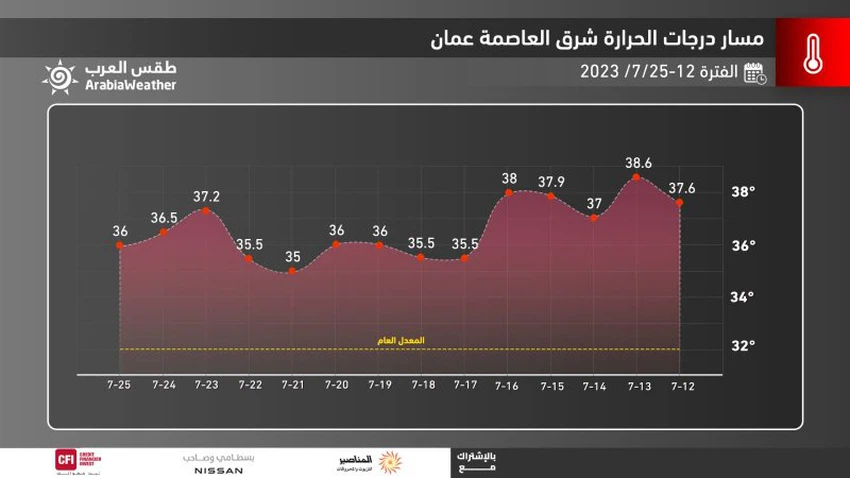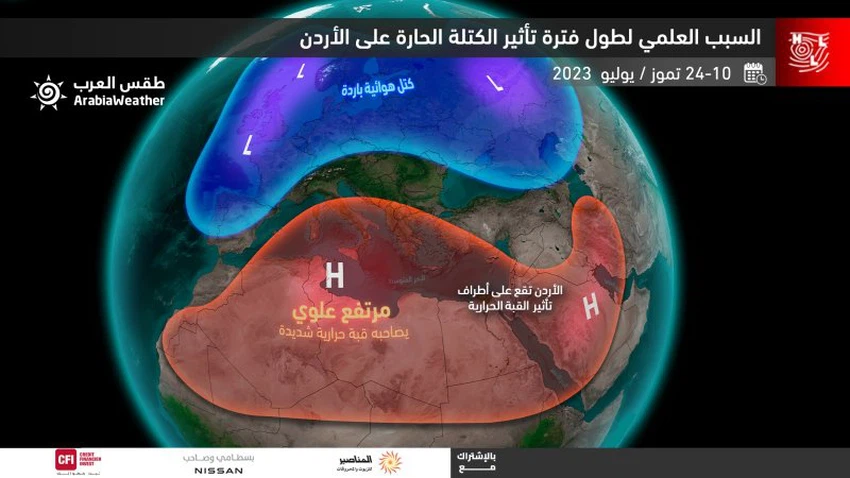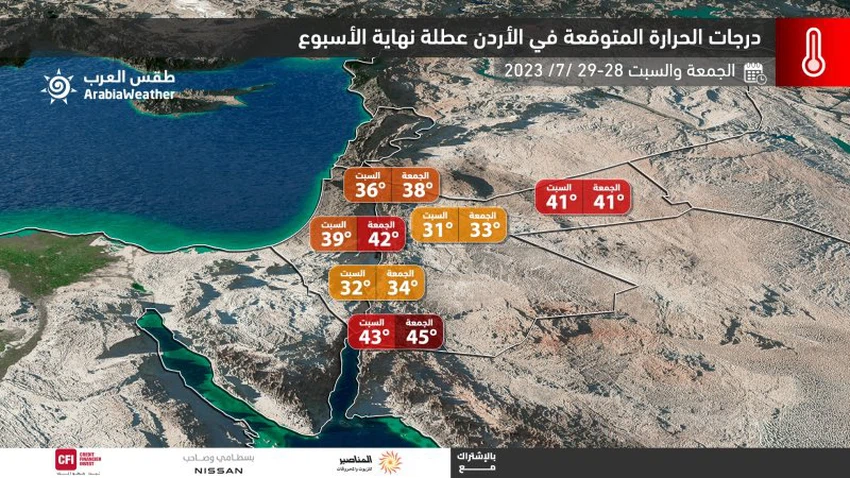Jordan: After a long stay and impact of the hot mass on the kingdom, expectations are that it will decline early next week
Weather of Arabia - The Levant, including Jordan, has been affected by a hot air mass since the twelfth of this July, and has been located to the east of the Kingdom and the Levantine desert, and has caused a noticeable rise in temperatures and has gone beyond its usual rates by more than 5 degrees Celsius. The hot mass is classified as of medium intensity, as no record or exceptional temperatures were recorded, but it was characterized by a long period of influence, which led to an increase in the feeling of fatigue and heat exhaustion.

The scientific reason behind the long period of influence of the hot mass on the Kingdom
And the long effect of the hot mass on the Kingdom comes as a result of the eruption of a series of cold masses to large parts of the north, center and west of the European continent, which made the Mediterranean basin region under the influence of a strong air rise in the upper layers of the atmosphere and the flow of a hot seasonal air mass. On the surface, the regions of the Middle East and North Africa become a warm thermal coverage area, because the cold mass that descends over Europe displaces another warm mass towards our region.
Despite the long effect of the hot mass, the Kingdom did not record record levels of temperatures due to its strength on the outskirts of this air high, while the regions of the Maghreb and southern Europe fell under the weight and intensity of this air high, so that many of those regions recorded temperatures exceptional.

Weather in Jordan this weekend
The latest weather maps, through computer simulation models, indicate expectations that Jordan will continue to be affected until Friday by the hot air mass, so that temperatures will remain several degrees higher than their usual rates and hot weather will prevail in most regions, while the Kingdom will be affected by an air mass with temperatures close to their usual rates early on. next week.
And in the details, it is expected, God willing, that temperatures will continue on Thursday and Friday to be higher than their general rates by 3-5 degrees Celsius, and the weather will be hot in various regions and very hot in the desert, the Jordan Valley, the Dead Sea and Aqaba, and the maximum ranges in Amman and Jordanian cities reach around the mid-30s Celsius with the afternoon hours, while the lows drop to the mid-twenties Celsius with hotter than usual weather at night, which may tend to moderate over the high mountains in the late hours of the night.
Starting from Saturday, temperatures tend to decrease slightly, while remaining 2-3 degrees Celsius higher than their usual rates for this time of the year. The weather is relatively hot over the high mountains, while the weather is hot in the rest of the regions. The temperatures are lower at night compared to what is the case, and the weather is generally mild, turning to pleasant with the late night hours over the mountain heights.

Temperatures continue to drop on Sunday and return to close to their usual rates for this time of the year, and a normal summer atmosphere prevails in various regions. The weather is generally mild to pleasant during the night hours.
God knows.
Arabia Weather App
Download the app to receive weather notifications and more..



